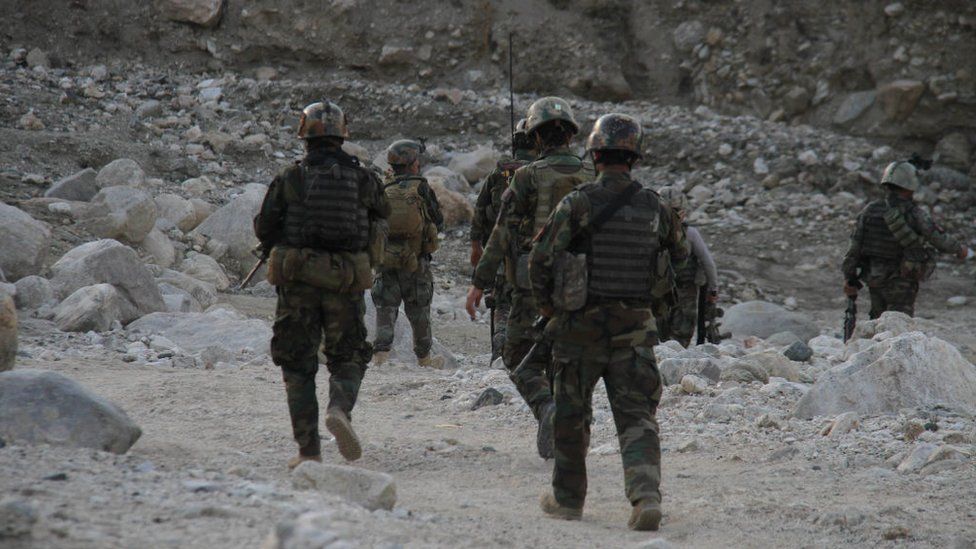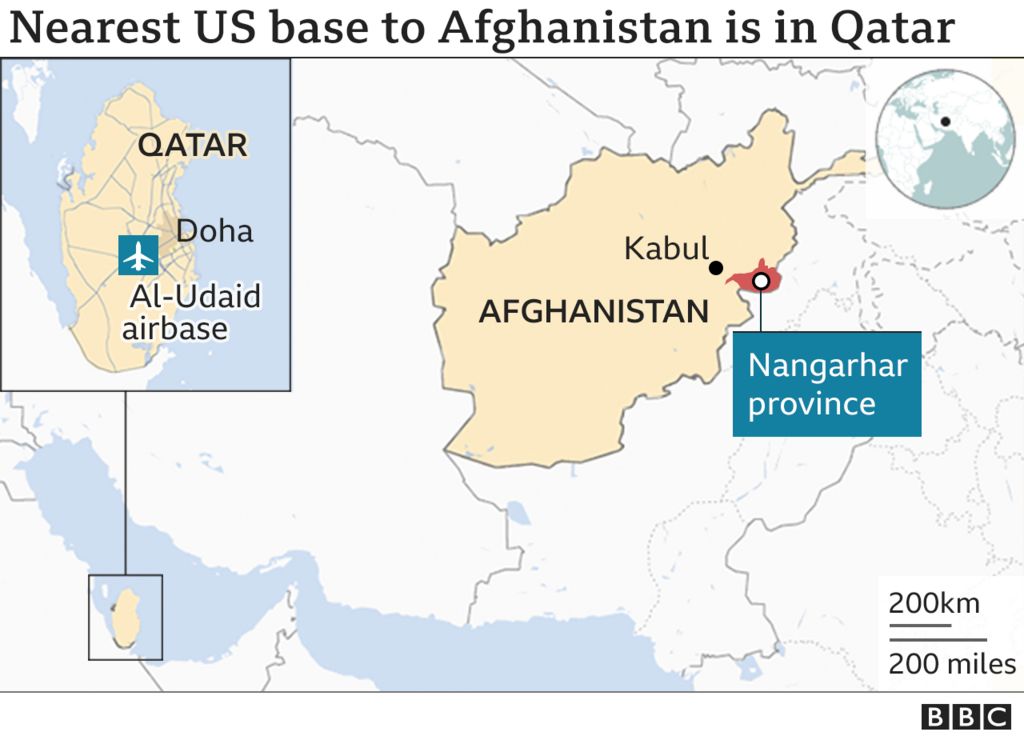
"The UK will fight Islamic State by all means available," says Dominic Raab. The foreign secretary added that the UK would "draw on all elements of national power" to pursue the group's leaders.
So what does that mean in practice? What exactly are the tools at Britain's disposal? Or is this, as some critics would maintain, just an empty boast?
First off, let's review what's been lost.
The Taliban takeover of nearly the whole of Afghanistan means that the West - and specifically the CIA, MI6 and other intelligence agencies - no longer has a trusted, in-country security service or Afghan special forces to work with.
For the nearly 20 years that NATO and other multinational forces have been in Afghanistan, the intelligence provided by the country's National Directorate of Security has been vital in disclosing the covert activities of al-Qaeda, ISIS-K (the Afghan affiliate of Islamic State group) and other jihadist militant groups.
Afghan, US, British and other special forces were then able to swoop in, often by helicopter in the dead of night, and close down those bases before they could successfully launch any international attacks.
Hence the claim that for 20 years there has not been a single transnational attack launched from Afghanistan while Western forces were there.
So what now? What's left?
The loss of both its Afghan bases and an established network of human informants has forced the West - primarily the US and UK - to now rely on two other methods: cyber interception of messages, and "over-the-horizon" drone strikes.
The fact that the US was able to locate and strike an ISIS-K target in Nangarhar province so soon after last Thursday's deadly bomb attack at Kabul airport shows that it still has some skin in the game - that it is not completely blind to what its adversaries are up to in the more remote corners of that country.
The US Central Command facility at Al Udeid airbase in Qatar maintains oversight of operations in Afghanistan, and when a target is identified it can call on a number of "assets" in the region to attack it, most notably missile-armed drones which are able to hover, unseen, over a location for hours on end.

But there is no getting around the fact that Afghanistan has now become a hard target for intelligence agencies. Most of those human informants who were supplying tip-offs on militant activities have either fled the country or gone into hiding.
Both MI6 and the UK government's listening station GCHQ ultimately report to the foreign secretary, so Dominic Raab will be well aware of the challenges ahead.
GCHQ, together with its US counterpart the National Security Agency, has been instrumental in locating ISIS terror cells in places like Syria and Iraq.
But for MI6 the reality is that it will need to rebuild an entire network of human informants if it is to successfully place agents "upstream" inside terrorist organisations in Afghanistan who can then give warning that an attack is being planned. And that could take years.
This prompts another question: will there be intelligence cooperation between the Taliban and the West?
Yes, is the answer, although it will be limited and neither side is likely to say much about it in public.
It is one of the bizarre oddities of the whole Afghan situation that the US and the Taliban, who have just spent the last 20 years fighting each other, now find themselves on the same page when trying to confront ISIS-K.
ISIS-K is a declared enemy of both the Taliban and al-Qaeda and is likely to become the new insurgent challenge to Afghanistan's new rulers.
But when it comes to al-Qaeda, the situation is a lot murkier.
According to a UN report published in June there remain strong ethnic and marital ties between the Taliban and al-Qaeda.
The purported return to Afghanistan this week of Osama Bin Laden's former security chief Amin ul-Haq is a worrying sign. That such a high-value individual, classified by the US as a Specially Designated Global Terrorist, should feel safe enough to return now the US has left will be deeply troubling for counter-terrorism officials in many countries.
They won't be taking their eyes off Afghanistan for many years to come.
World - Latest - Google News
September 01, 2021 at 12:02AM
https://ift.tt/3kz5Jfy
Afghanistan: How can the West stop terror bases? - BBC News
World - Latest - Google News
https://ift.tt/2SeTG7d
Bagikan Berita Ini














0 Response to "Afghanistan: How can the West stop terror bases? - BBC News"
Post a Comment